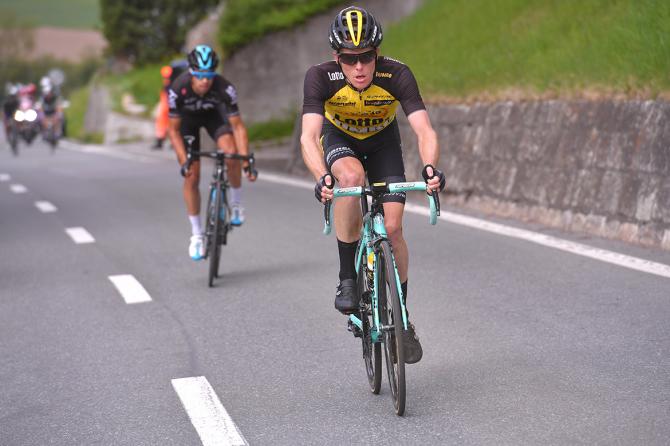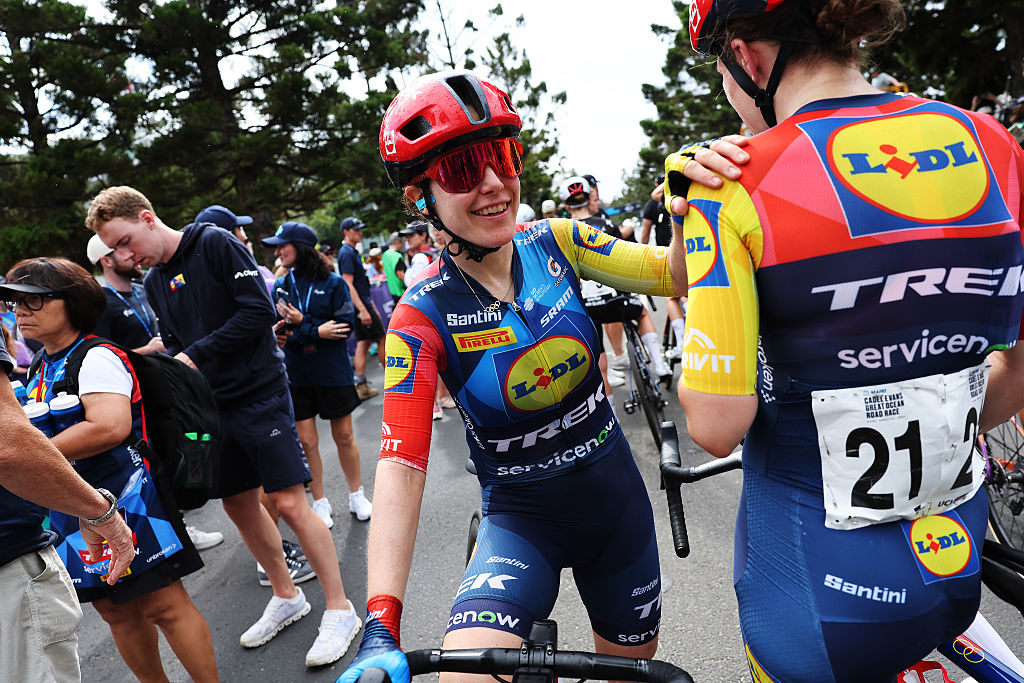Giro d'Italia: Konyshev called off Zakarin's attack - News shorts
Mollema slips, Kruijswijk and Pozzovivo jump one spot each
The latest race content, interviews, features, reviews and expert buying guides, direct to your inbox!
You are now subscribed
Your newsletter sign-up was successful
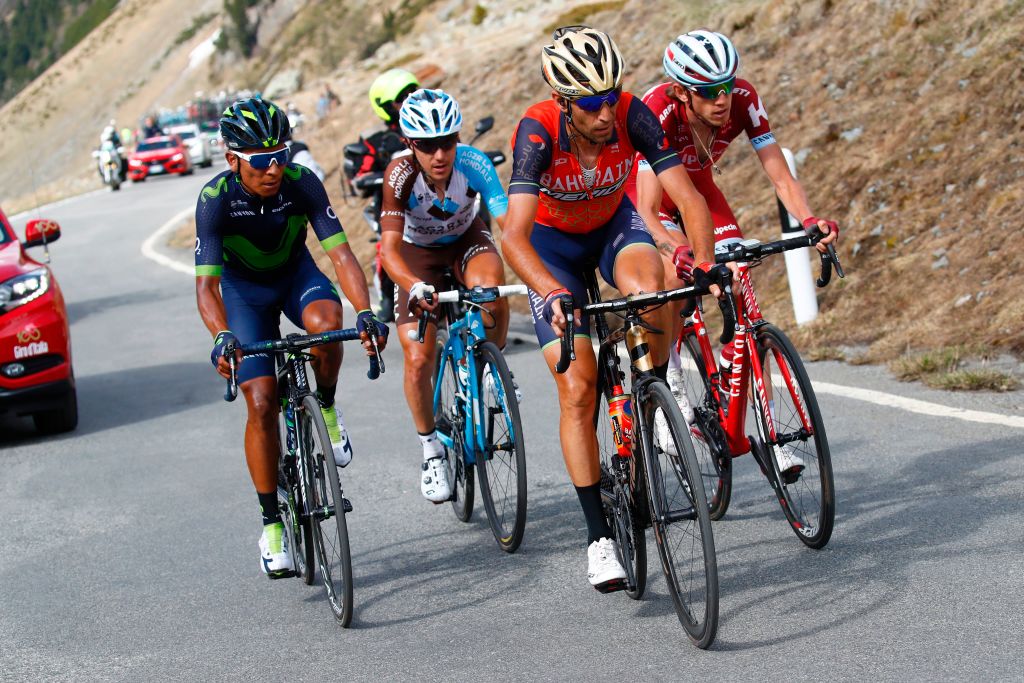
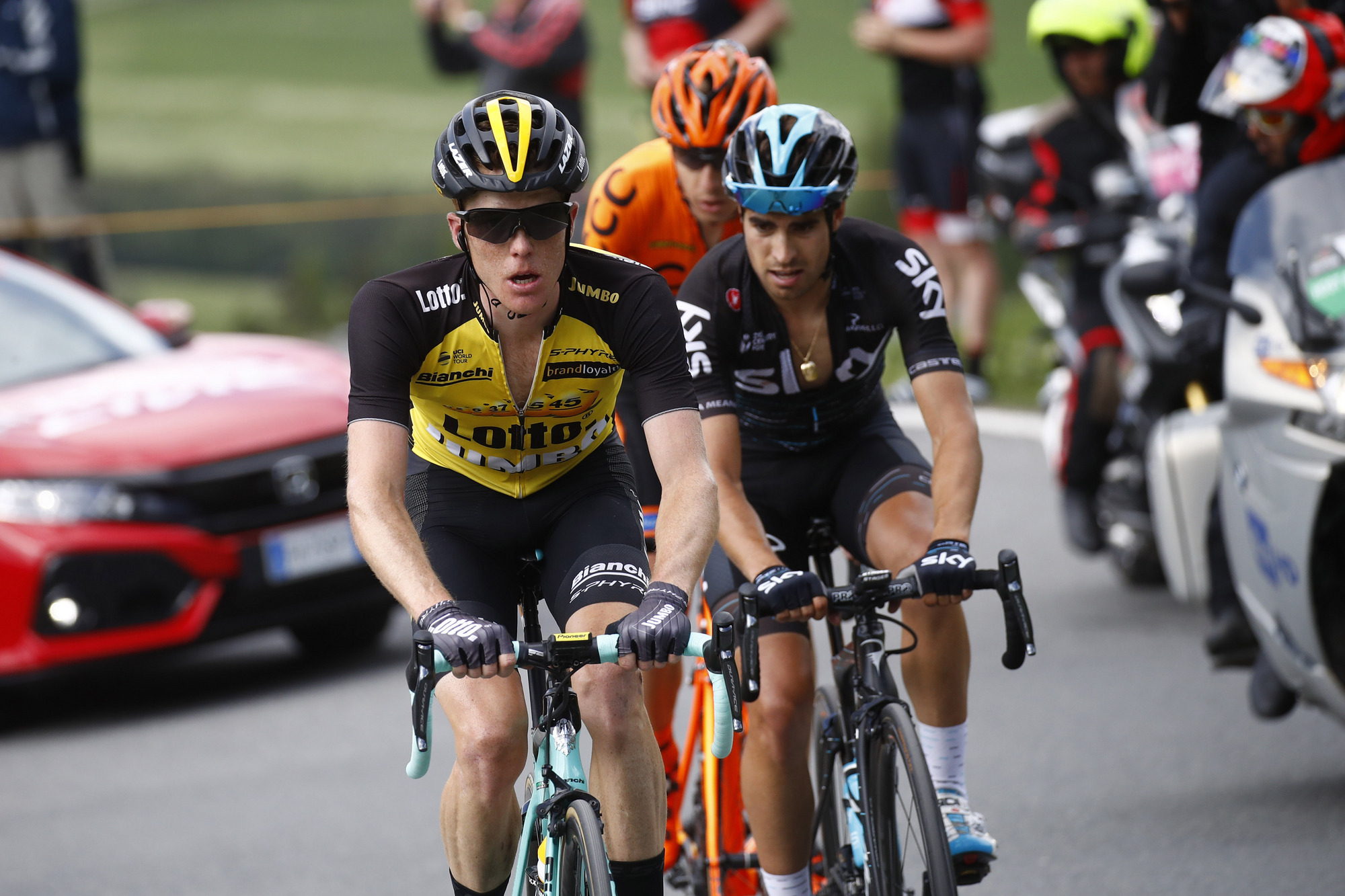
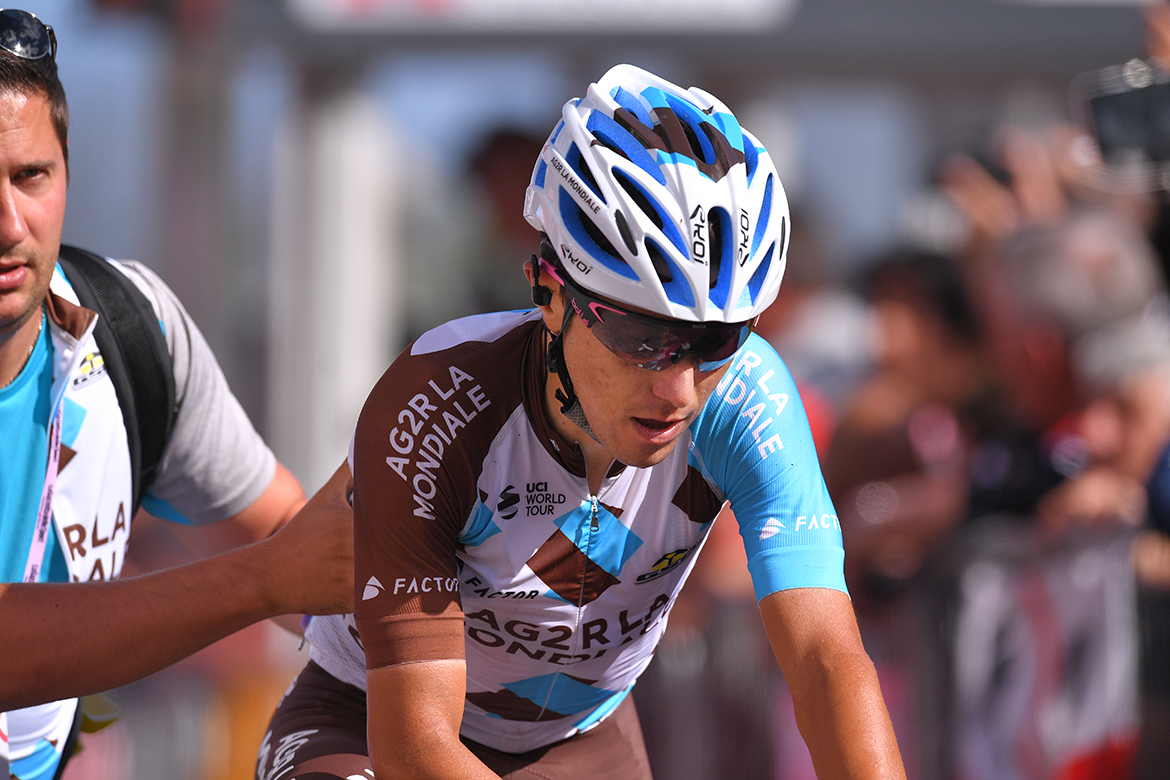
Stage 16 of the Giro d'Italia was one of the final chances for the climbers to gain time on race leader Tom Dumoulin (Sunweb), but they were forced to balance their ambitions with sportsmanship as the maglia rosa stopped just before the final climb to relieve his bowels.
As they began the final climb to Umbrailpass, the contenders held off on their attacks out of respect. Ilnur Zakarin (Katusha-Alpecin) was the first to jump, but was called back by his directeur sportif Dmitry Konyshev, according to the team.
"We were planning to do something, but it was a bit confusing when the leader stopped for an emergency toilet break," Konyshev said. "Zakarin tried to attack but I stopped him while we tried to get a better understanding from the car what was happening. Instead of attacking he continued to follow the other guys."
Movistar's Nairo Quintana and eventual stage winner Vincenzo Nibali (Bahrain-Merida) soon took up the aggression, and Zakarin lost contact before the top of the climb and the 20km descent.
"He found a good rhythm with Quintana and [Domenico] Pozzivivo but it was impossible to gain time on the downhill because we know that is not his best skill. He lost some 30 seconds from Nibali on the stage but for me it is OK as he gained time on some of his other rivals," Konyshev concluded.
Zakarin finished the stage with his fifth place still intact, and he gained ground on FDJ's Thibaut Pinot, now trailing fourth place by two seconds, and is 1:28 behind third placed Quintana.
Mollema slips behind Pozzovivo
Bauke Mollema (Trek-Segafredo) went into the stage to Bormio with aspirations of climbing up the overall standings, but instead slipped one spot down the rankings to seventh after losing ground on Domenico Pozzovivo (AG2R La Mondiale).
The latest race content, interviews, features, reviews and expert buying guides, direct to your inbox!
Mollema was feeling good over the first two climbs, his directeur sportif Kim Andersen said. "We thought because Movistar had ridden on the front, that Quintana would attack and Mollema was ready to go. But nothing happened," Andersen said.
"Suddenly on the bottom of the last climb, [Bauke] was not feeling really good. He recovered a little bit, and he tried to follow two-three times the accelerations at the top, but the legs were not there. He stayed with the second group, and they went at a regular tempo. For a long time they were at 18-20 seconds, but when they attacked again at the top, the gap went up."
Mollema said he began to suffer on the climb to the Umbrailpass. "When Nibali went, I couldn't follow, and it's a pity to lose time on the first four GC guys, and then to lose one spot on GC. But in the end, the legs were not good enough to follow them."
"More can still happen," agreed Mollema. "The next days will be hard, especially trying to recover from this stage. I still feel like I am recovering well, so hopefully that is a good sign for the next days."
Mollema knew his compatriot and race leader Tom Dumoulin was in trouble on the penultimate climb because he overheard him speaking in Dutch to his teammate Laurens ten Dam.
"It was not a surprise for me when Tom stopped because I was just behind him and I heard him talking in Dutch already to his teammate Ten Dam, so I knew he had to stop," Mollema said. "That's a pity for him. At the beginning we waited, Movistar slowed down, but, yeah, it was not a good moment for a stop like that."
Kruijswijk's aggression doesn't pay off
Steven Kruijswijk (LottoNl-Jumbo) faced an uphill battle on stage 16 in more ways that one: coming into the stage 10th overall, seven minutes behind on GC, he had to no choice but to attack. But his move came a bit earlier than he wanted, and in the end he gained one spot – and only then because Movistar's Andrey Amador was put into service for his team leader Nairo Quintana.
"It was not planned to attack so early, but I wanted to anticipate the big favourites," Kruijswijk said. "I felt good at the start of the day and decided to attack. It cost a lot of energy, but at the end, I was in the good breakaway."
On the Stelvio, the breakaway was down to seven. By the final climb, there were three, but he didn't have enough to stay with eventual second place finisher Mikel Landa on the final climb.
"Unfortunately, we did not have enough lead and I was not good enough to follow Landa when he counterattacked," Kruijswijk said.
"Certainly after last week, I wanted to try to gain some places. If you do not belong to the best five or six riders, you know that you have to try it differently.
"On a day like today it's hard to tell if you're good or bad. This was a heavy stage and there are more to come. The advantage is that these days are better for me than others."
"I have yet to win a Giro stage in my career and I would like to. On such a day as today, it is possible."
Pozzovivo makes up ground
Domenico Pozzovivo (AG2R La Mondiale) pulled himself one rung up the general classification ladder, coming fourth on the queen stage to Bormio. The Italian just missed the winning move by Vincenzo Nibali, but sailed down the 20km descent from the Umbrailpass to finish 24 seconds down on the stage winner.
He moved up from seventh to sixth overall, 3:05 down on Tom Dumoulin, and 1:53 off the podium.
"I knew this stage would be good for me," Pozzovivo said. "I know the roads by heart since I often come to train here at altitude in the shadow of the Stelvio. At the top of the last pass, the Umbrail, we were all really tired. I was having some cramps on the descent into Bormio.
"The speed was super-fast all day despite the fact that it was a seriously tough stage [222km with 5300m of climbing and descending]. It's gone pretty well for me today. The legs were good. From now on, the Giro will be a struggle every day until the finish. Tomorrow the start will be difficult, but I hope that we can breathe a little bit. I'm confident."
